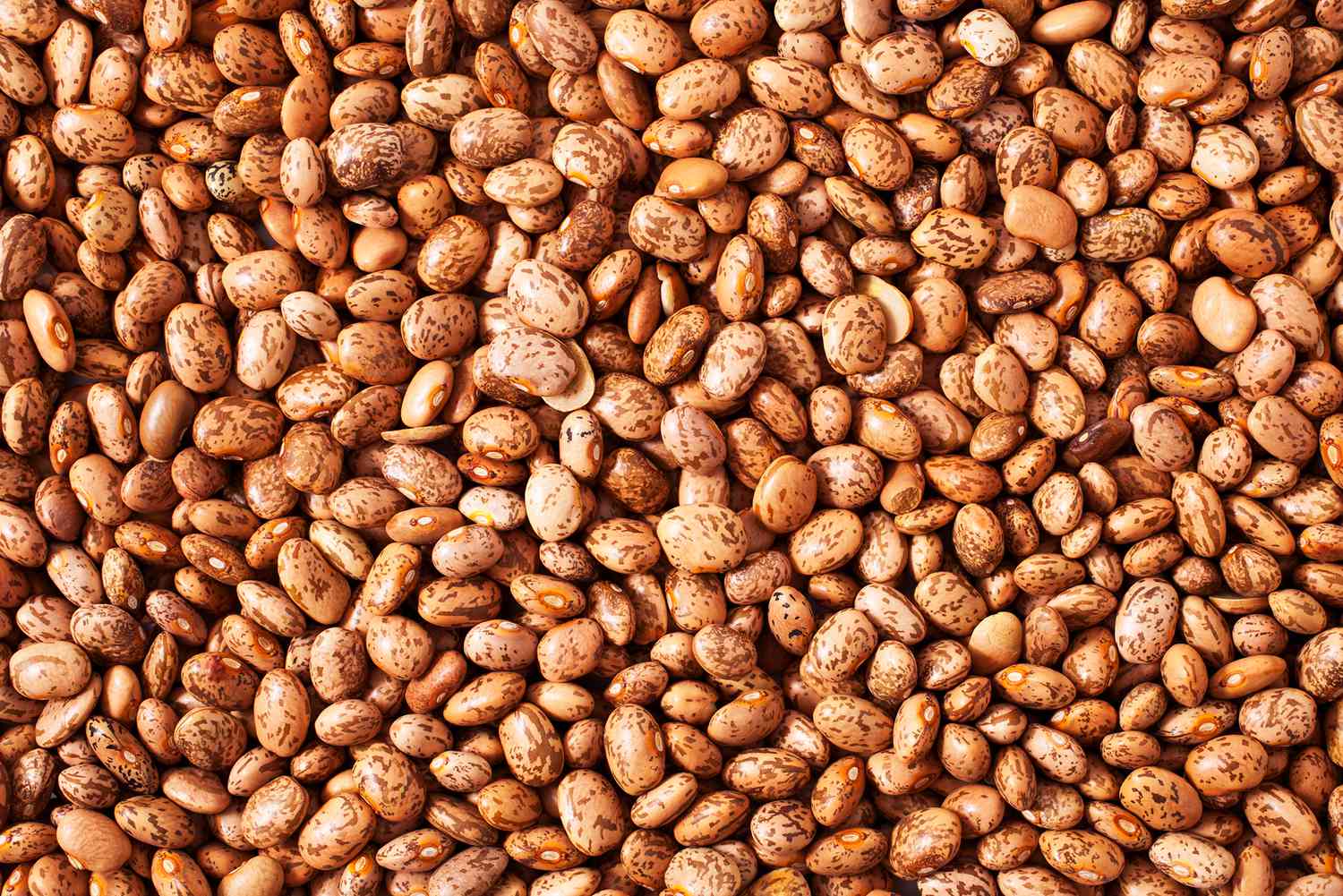The Ultimate Guide to Pinto Beans Carbs: Unveiling the Truth and Health Benefits
Pinto beans are a popular legume known for their delicious taste and nutritional value. In this comprehensive guide, we will explore the topic of pinto bbeancarbs and uncover the truth behind their significance in a healthy diet.

Understanding Carbohydrates
Carbohydrates are a vital macronutrient that provides our bodies with the energy needed for daily activities. They are classified into two types: simple and complex carbs. Simple carbs, found in foods like sugar and fruits, are quickly digested and provide instant energy. On the other hand, complex carbs, such as those found in whole grains and legumes like pinto beans, take longer to digest and provide sustained energy.
Carbohydrates play a crucial role in maintaining a balanced diet. They are the primary source of energy for our brain and muscles, and they also help regulate blood sugar levels. Including the right amount of carbs in our meals is essential for overall health and wellbeing.
Pinto Beans: A Nutritional Powerhouse
Pinto beans, also known as “frijol-beings,” are a type of bean native to Mexico and commonly used in various cuisines worldwide. They have a distinctive mottled appearance with a beige background and reddish-brown speckles. Pinto beans are widely available and can be purchased dried or canned.
When it comes to nutrition, pinto beans are a true powerhouse. They are rich in macronutrients like carbohydrates, protein, and dietary fiber, as well as micronutrients like vitamins and minerals. Let’s delve into the health benefits of pinto beans:
High Fiber Content:
Pinto beans are an excellent source of dietary fiber. Just one cup of cooked pinto beans contains around 15 grams of fiber, which is over half of the recommended daily intake. Fiber aids in digestion promotes satiety, and helps maintain a healthy weight.
Protein Source:
Pinto beans are a great plant-based protein option, especially for vegetarians and vegans. They contain approximately 15 grams of protein per cooked cup, making them a valuable addition to a balanced diet.
Vitamins and Minerals:
Pinto beans are packed with essential vitamins and minerals, including folate, iron, magnesium, and potassium. These nutrients support various bodily functions, such as red blood cell production, energy metabolism, and muscle function.
Analyzing Pinto Beans Carbs with the MECE Framework
Total Carbohydrate Content
Understanding the total carbohydrate content in pinto beans is essential for dietary planning. In a one-cup serving of cooked pinto beans, there are approximately 45 grams of total carbohydrates. This includes both simple and complex carbohydrates.
Compared to other legumes, pinto beans have a moderate carbohydrate content. For example, black beans contain around 41 grams of carbohydrates per cup, while chickpeas have approximately 45 grams per cup. In terms of total carbs, pinto beans fall within a similar range as other legumes, making them a suitable choice for those following a balanced diet.
Dietary Fiber in Pinto Beans
Pinto beans are known for their high fiber content. In a one-cup serving, cooked pinto beans provide an impressive 15 grams of dietary fiber. This amounts to more than half of the recommended daily fiber intake for adults.
Dietary fiber offers numerous health benefits. It aids in digestion by promoting regular bowel movements and preventing constipation. Additionally, fiber contributes to weight management as it adds bulk to the diet, leading to increased feelings of fullness and reduced calorie intake. Furthermore, a high-fiber diet has been associated with a lower risk of heart disease, type 2 diabetes, and certain types of cancer.
It’s important to note that dietary fiber is a type of carbohydrate that our bodies cannot fully digest. Therefore, when considering the carbohydrate content of pinto beans, it’s crucial to account for the fiber separately.
Starch and Resistant Starch
Pinto beans contain starch, a complex carbohydrate composed of long chains of glucose molecules. Starch is typically broken down into glucose during digestion and serves as a source of energy for the body.
However, pinto beans also contain a type of starch called resistant starch. Resistant starch resists digestion in the small intestine and reaches the large intestine intact. Once in the large intestine, it acts as a prebiotic, providing nourishment for beneficial gut bacteria.
The presence of resistant starch in pinto beans has several benefits. Firstly, it has a minimal impact on blood sugar levels, making pinto beans a suitable choice for individuals with diabetes or those aiming to manage their blood sugar. Secondly, resistant starch promotes gut health by supporting the growth of beneficial bacteria, which can improve digestion and overall gut function.
Glycemic Index and Load
The glycemic index (GI) measures how quickly carbohydrates in a food raise blood sugar levels compared to pure glucose. The glycemic load (GL) takes into account both the quantity and quality of carbohydrates in a food, providing a more accurate representation of its impact on blood sugar levels.
Pinto beans have a low glycemic index, with a value of around 39. This means that the carbohydrates in pinto beans are digested and absorbed slowly, resulting in a gradual and steady rise in blood sugar levels. The glycemic load of pinto beans is also relatively low, further indicating their minimal impact on blood sugar.
These low GI and GL values make pinto beans a suitable choice for individuals looking to manage their blood sugar levels or those following a balanced diet focused on stable energy levels throughout the day.
FAQs on Pinto Beans Carbs
Are pinto beans low-carb?
Pinto beans are not considered low-carb, but they can still be included in a balanced diet. One cup of cooked pinto beans contains approximately 45 grams of total carbohydrates. While this may not be suitable for very low-carb diets, it can still fit into moderate-carb or balanced eating plans.
How many carbohydrates are there in a serving of cooked pinto beans?
A serving of cooked pinto beans, which is typically one cup, contains around 45 grams of total carbohydrates. This includes both fiber and other complex carbohydrates.
Can pinto beans be included in a low-carb diet?
Pinto beans may not be suitable for very low-carb diets, as they contain a moderate amount of carbohydrates. However, they can still be enjoyed in moderation as part of a balanced diet that includes other nutrient-dense foods.
Do pinto beans cause a spike in blood sugar levels?
No, pinto beans have a low glycemic index (GI) and glycemic load (GL), which means they have a minimal impact on blood sugar levels. The carbohydrates in pinto beans are digested and absorbed slowly, resulting in a gradual rise in blood sugar.
Are pinto beans suitable for individuals with diabetes?
Yes, pinto beans can be a suitable food choice for individuals with diabetes. Their low glycemic index and glycemic load make them a favorable option as they have a minimal impact on blood sugar levels. However, it’s important to consider portion sizes and individual dietary needs when incorporating pinto beans into a diabetes management plan.
How does the carbohydrate content in pinto beans compare to other legumes?
The carbohydrate content of pinto beans is similar to that of many other legumes. For example, black beans and chickpeas have comparable carbohydrate levels, each containing around 41-45 grams of carbohydrates per cooked cup. Therefore, pinto beans can be considered as part of a balanced legume intake.
Are pinto beans a good source of dietary fiber?
Yes, pinto beans are an excellent source of dietary fiber. One cup of cooked pinto beans provides approximately 15 grams of fiber, which is over half of the recommended daily intake. Fiber is essential for digestive health, weight management, and reducing the risk of chronic diseases.
What is the recommended serving size of pinto beans for a balanced diet?
A typical serving size of cooked pinto beans is one cup. This serving size provides a good balance of carbohydrates, protein, and fiber. However, individual dietary needs may vary, so it’s always best to consult with a healthcare professional or registered dietitian for personalized recommendations.
Can pinto beans aid in weight loss?
Pinto beans can be a valuable addition to a weight-loss diet. Their high fiber content promotes feelings of fullness and helps control appetite. Additionally, they provide a good source of plant-based protein, which can contribute to satiety and support muscle maintenance during weight loss efforts.
How do pinto beans contribute to heart health?
Pinto beans offer several benefits for heart health. Their high fiber content helps lower cholesterol levels and maintain healthy blood pressure. Additionally, they are a good source of potassium, which supports heart function. Including pinto beans as part of a balanced diet can contribute to a heart-healthy lifestyle.
Conclusion:
Pinto beans are not only delicious but also packed with nutritional benefits. They provide a moderate amount of carbohydrates, including dietary fiber and resistant starch, which have various health benefits. Pinto beans have a low glycemic index and load, making them suitable for individuals with diabetes or those looking to manage blood sugar levels. Incorporating pinto beans into a well-rounded diet can contribute to overall health and provide essential nutrients. Remember to consult with a healthcare professional or registered dietitian for personalized dietary advice.




